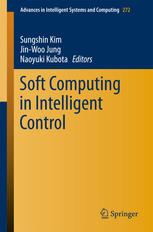

Most ebook files are in PDF format, so you can easily read them using various software such as Foxit Reader or directly on the Google Chrome browser.
Some ebook files are released by publishers in other formats such as .awz, .mobi, .epub, .fb2, etc. You may need to install specific software to read these formats on mobile/PC, such as Calibre.
Please read the tutorial at this link: https://ebookbell.com/faq
We offer FREE conversion to the popular formats you request; however, this may take some time. Therefore, right after payment, please email us, and we will try to provide the service as quickly as possible.
For some exceptional file formats or broken links (if any), please refrain from opening any disputes. Instead, email us first, and we will try to assist within a maximum of 6 hours.
EbookBell Team

4.1
30 reviewsNowadays, people have tendency to be fond of smarter machines that are able to collect data, make learning, recognize things, infer meanings, communicate with human and perform behaviors. Thus, we have built advanced intelligent control affecting all around societies; automotive, rail, aerospace, defense, energy, healthcare, telecoms and consumer electronics, finance, urbanization. Consequently, users and consumers can take new experiences through the intelligent control systems. We can reshape the technology world and provide new opportunities for industry and business, by offering cost-effective, sustainable and innovative business models. We will have to know how to create our own digital life. The intelligent control systems enable people to make complex applications, to implement system integration and to meet society’s demand for safety and security. This book aims at presenting the research results and solutions of applications in relevance with intelligent control systems. We propose to researchers and practitioners some methods to advance the intelligent controls and apply the intelligent control to specific or general purpose. This book consists of 10 contributions that feature an experimental verification of defect detections, depth-based visual object groupings, fuzzy-tuning PID controller, and control of traffic speed, robust object detection, and detection method of radio frequency interference, ontological model for the tax system, future toy web, cooperation level estimation, and interface for wearable computers. This edition is published in original, peer reviewed contributions covering from initial design to final prototypes and authorization.